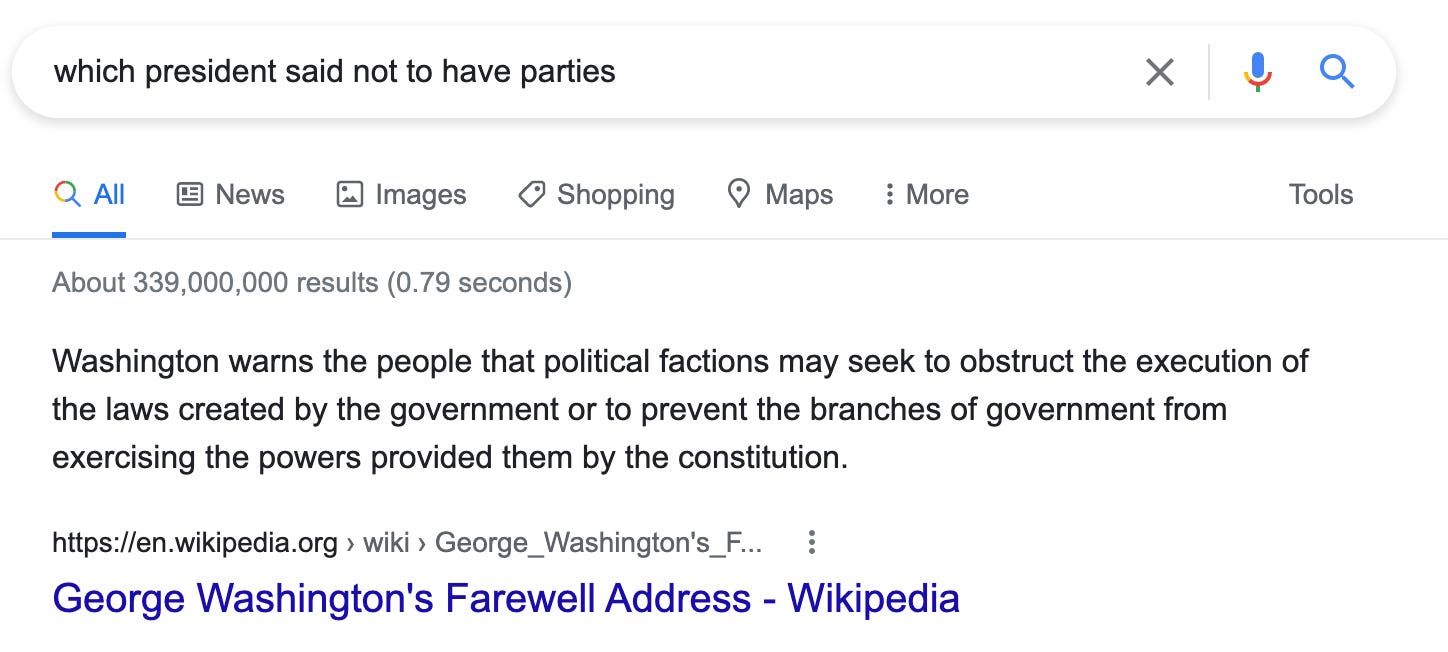Many months and moons ago, we broke down what the filibuster is and how the Senate often uses the process of budget reconciliation to pass House-approved bills without supermajority support.
As I hone my ability to predict the future, we once again have to return to the reconciliation conversation in order to talk about the looming government shutdown. Today, we’re going to break down which specific bills are being voted on this week, what is the current drama around passing anything all of them, and why Congress remains America’s preeminent drama queen.
As Refreshing as an Unpaid October Vacation Due to a Government Shutdown
Before we get into the political drama de jour, let’s rinse, repeat, and refresh ourselves on what exactly the filibuster and budget reconciliation processes are.
While the House of Representatives has time limits on how long a vote can be debated or prevented through debate, the Senate has a tradition of unlimited discussion which has allowed for senators to filibuster: an antiquated practice “designed to prolong debate and delay or prevent a vote on a bill, resolution, amendment, or other debatable question.”
In the past, “senators who wanted to filibuster a bill had to remain on the floor either singularly or in a little squad and talk continuously to delay a vote on a proposed piece of legislation.” The filibuster would only end when this annoyed the shit out of a simple majority (⅔ of senators) to vote to end the filibuster debating period and move into a final vote.
In 1975, however, the Senate adopted a new rule that required a supermajority of 60 out of 100 senators to vote to move to formal voting (yes, it’s that bizarre. The filibuster requires a vote for another vote). Since American politics have only gotten more partisan since 1975, you can imagine how this often goes.
Once the Senate moves into the formal voting period (voting to pass or fail a piece of legislation), only a simple majority —which is 50 out of 100 senators— is required to pass legislation. Right now, the Senate is split 50/50 down party lines but Democrats theoretically have control of the house because, as noted last week, the president of the Senate is Madam Vice President Kamala Harris and she casts a tie-breaking vote whenever needed.
But if 60 senators do not vote to move to a formal vote, then the proposed legislation is concerned filibustered, and this is how the Senate has filibustered, give or take, since 1975.
Now, the loophole to this obviously chaotic mess is through a parliamentary procedure in Congress known as budget reconciliation. Although reconciliation still exists in the House unlike the filibuster, when the news media talks about “budget reconciliation,” it almost exclusively refers to how the process is going in the Senate (like just pick a favorite house of Congress I guess).
Budget reconciliation is basically an elitist way to say “cram every policy you want to pass that year into one big bill and connect it to money.” In order to pass legislation around the filibuster’s dumb fucking rules, whatever party has the simple majority in Congress (right now, it is the Democrats) will lay out a reconciliation package, or a financial plan, for the next fiscal year that features all of the bills that would have been filibustered if put up for an individual vote.
If a reconciliation package passes the House —which, remember, already votes by a simple majority— it will go to the Senate. There, after the vote to end the filibuster ends, it will be voted on (or reworked and then voted on) and then either sent back to the house or right to the president’s desk.
Easy, right?
Okay But Why Does Literally Any of This Matter Now?
As of right now, the fiscal year for Congress ends this Thursday, September 30th. This sets up the potential for a government shutdown, which is, as the Washington Post explains:
what happens when Congress fails to enact the annual spending bills on time and government agencies run out of money to pay their employees and perform duties for the American people.
Congress approves money for most of the federal government to operate — that’s the “power of the purse” they were given in the Constitution. The federal government can only perform many of its functions — like food-safety inspections or tax refunds — when Congress has authorized money for it to do so.
The fiscal year for the government ends Sept. 30, which means Congress needs to approve new government funds by then or the government will shut down.
Democrats are currently trying to raise the debt ceiling because “at the same time that the government needs new funds to stay open, the government also needs Congress to approve the Treasury Department borrowing more money to pay its bills. (The government spends more than it takes in.) If Congress doesn’t approve that by mid-October, the U.S. could default on its loans for the first time ever.” (X)
Although this is usually an action that has bipartisan support, Senate Republicans have made it clear they will filibuster any debt ceiling vote as well as a continuing resolution (CR) that would delay the shutdown and fund the government until December.1
Why?
“They [Senate Republicans] argue that because Democrats are also trying to pass a huge, $3.5 trillion bill to dramatically reshape how federal government works… Democrats should raise the debt ceiling on their own.” (X)

Who is truly to blame here? Mercury retrograde, primarily, because the communication is just not there between Democrats and Republicans!!!
After that, how you answer is mainly down party lines: Republicans will argue that Democrats are being egregious and overreaching in their pursuit of a far larger reconciliation bill, while Democrats will argue that Republicans are blocking actions that were awarded to them when they had dominance of the government and are being unruly and unfair.
A classic Mercury retrograde conundrum.
And Where Do They Even Currently Stand? You’ve Explained None of That!!!
There are three massive things Congress needs to decide on this week:
1.) How to stop the looming shutdown (for which all efforts to stop have and will likely continue to be blocked)
2.) A House Vote on the bipartisan $1 trillion infrastructure bill. This bill has already passed the Senate with a 69-30 vote but Speaker Pelosi will not even hold debates on it until the Senate passes the…
3.) $3.5 trillion reconciliation package (and yes, both say trillion with a T).
Dare I Ask Again—Why???
Democrats are currently split into two camps right now —moderates and progressives— which is making it hard to stand as a united front in the highly polarized and partisan government. Ms. Nancy’s bold stance was meant to pressure both progressives to co-sign the smaller infrastructure bill2, and moderates like Senator Joe Manchin (D-WV) (but a R-WV in the streets) to pass the reconciliation package in order to pass the hard-fought-for bipartisan bill.
Bold…. but a little messy!!!!
So What’s Going to Happen Next?
We very well might be going into a shutdown in the middle of a once again worsening pandemic: as I’m writing this, the Senate has just voted against the CR which means there is no Republican support for any bill temporarily extending government funding so long as it includes anything about raising the debt ceiling.
Theoretically, the Democrats could tack getting rid of the debt ceiling altogether through the budget reconciliation process (because it involves money and would otherwise be filibustered), just as they could much less dramatically raise the debt ceiling without Republican Senate support the same way. However, even if the Democrats decide to raise the debt ceiling themselves, the issue then becomes timing as the reconciliation package must be amended, approved, and signed by 12:01 am on October 1.
Vox also pitched the idea that President Biden himself could get rid of the debt limit but, once again:
If we do go into a shutdown, everything is thrown out of whack for a while. According to the Washington Post:
In the event of a shutdown, presidents can make some decisions about what is deemed essential for national health and safety and keep those programs going… There’s a law that is supposed to protect against overtly political decisions about what stays open, but no one’s been prosecuted under it. Plus it’s hard to enforce if the government is shut down.
This shut down in particular could be far-reaching. In the past, shutdowns have only affected some agencies because Congress had already approved funding for other agencies. But this shutdown would be a full one, because Congress hasn’t passed any funding bills. (Although some federal agencies, like the Post Office, operate independent of congressional funding. So you would still get your mail.)
It’s likely Biden would prioritize government functions tied to covid response, and deem those workers essential.
The problem is defaulting. Because it would be the first time the U.S. has ever done such a thing, “no one knows precisely when the U.S. Treasury will run out of money to pay its bills, including bondholders, let alone what would happen next. U.S. sovereign debt generally has been considered the safest and most liquid to own in the world.” (X)
Still, after a couple of topsy-turvy years in which the previously unthinkable became real, some Washington and Wall Street professionals have been girding for a worst-case scenario.
“I see it as an exceedingly slim chance, although with all the theatrics, the possibility has been ramped up,” said Ben Koltun, director of research for DC-based Beacon Policy Advisors. “If it does happen, it turns a manufactured political crisis into an economic crisis. The full faith and credit of the U.S. would no longer be full.”
The biggest issue is that all of this can still be handled and avoided. It’s as I said at the start, though: Congress is like a really bad remake of Confessions of a Teenage Drama Queen.
Just as Senate Republicans can easily stop being petty about this whole $3.5 trillion mishegas, Democrats don’t need to let the government go into a shutdown out of spite for Republicans’ pettiness. What this whole situation has revealed (along with the Big Lie, and the attacks on voting rights, and that whole insurrection earlier this year) is that partisanship is an actual curse set on us by a slave owner in 1796.3 While I personally support what both packages proposed by the Democrats have set out to do, I can still recognize how problematic it is that both sides of the aisle have decided to go full Joanne the Scammer: messy bitches who live for drama.
FactCheck.org, “Debt Limit Q&A”
According to the Wall Street Journal, “Rep. Pramila Jayapal, who heads the Congressional Progressive Caucus, has said more than half her group of nearly 100 lawmakers won’t vote for the infrastructure bill until there is an agreement on the broader package.”








Not the google in ur citations I’m dead